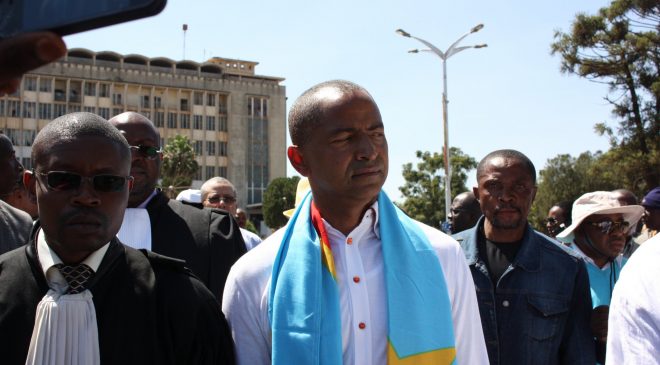
Last week, the authorities released opposition member Lens Omelonga from prison in Kinshasa, the capital of the Democratic Republic of Congo. He had spent seven months in custody for having retweeted a post criticizing a foundation established by Denise Nyakeru Tshisekedi, the wife of Congo’s president.
In May, Omelonga, the 31-year-old digital communications coordinator for the political party Envol (Take-Off), informed his family that he was going to a political meeting. He never returned home. Two weeks later, one of his brothers discovered he was being detained at “3Z,” a notorious jail of the National Intelligence Agency (Agence nationale de renseignements, ANR). He was transferred to Kinshasa’s central prison in early July.
Omelonga told that four ANR agents in civilian clothes had abducted him after his meeting, forced him into a white SUV, and driven away. He said he was placed in a cell where he was told that he had been detained because he had insulted the first lady in a tweet – evidence that he was against the government. Omelonga explained to them he had simply reposted the tweet.
The arrest and detention of Omelonga were arbitrary and an attack on the right to freedom of expression. Criminal defamation laws have a chilling effect on freedom of speech and should be rescinded. With the general elections scheduled in just two weeks, all Congolese should be able to express themselves freely, including online, without fear of arrest or prosecution.
